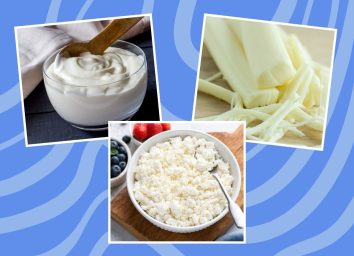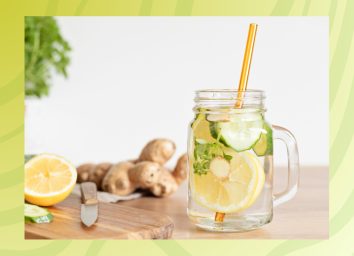Surprising Side Effects of Not Drinking Coffee, Say Dietitians
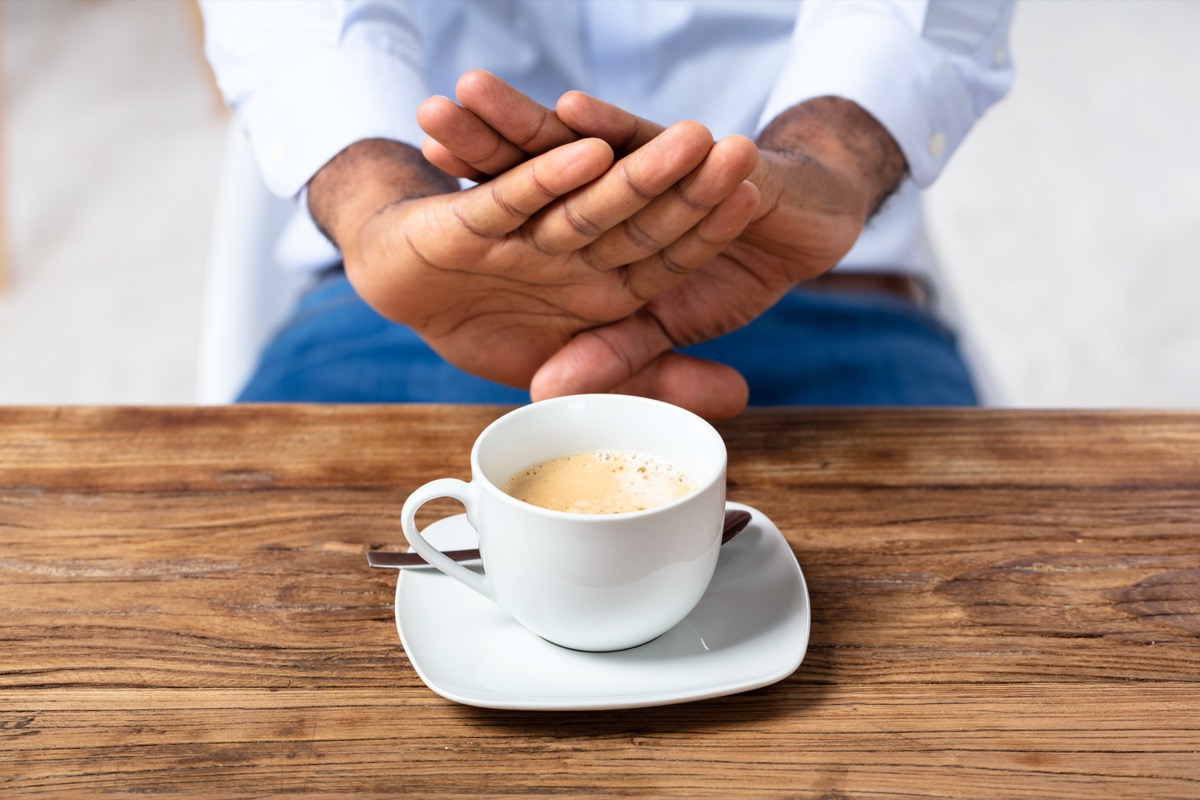
For many people, drinking a cup of coffee is as much of an essential part of their morning routine as brushing their teeth.
However, it's more than just a boost of energy you get with every sip. In many cases, coffee can have pronounced effects on your health and wellbeing—and giving it up can mean major changes, both physically and emotionally.
Whether you're ready to ditch your daily coffee habit or are curious about what a life without caffeine might look like, read on to discover the side effects of not drinking coffee, according to experts. And if you're making over your eating habits, too, check out The 7 Healthiest Foods to Eat Right Now.
Your anxiety may decrease.
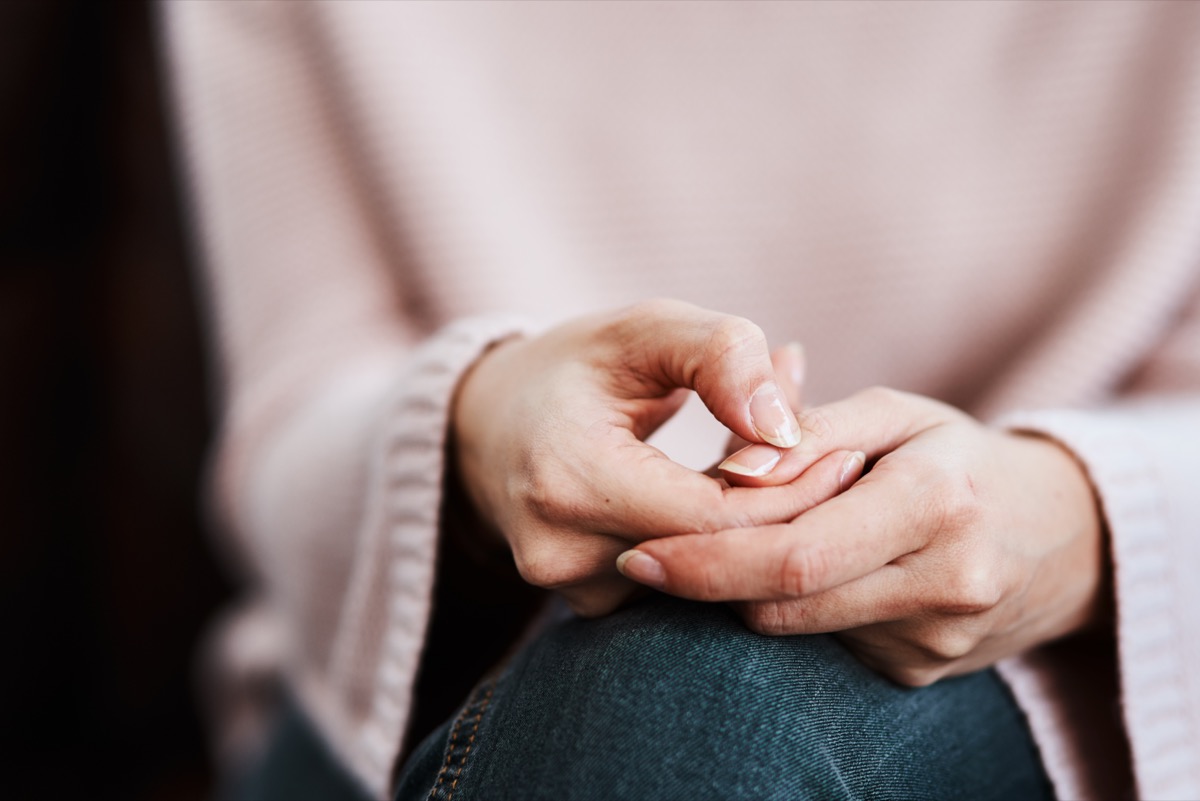
If you struggle with anxiety, cutting out caffeine may be a boon to your mental health.
"The caffeine in coffee can be stimulating—even overstimulating— for some if a person is a slow metabolizer of caffeine. This stimulation can worsen anxiety if consumed regularly," says Alicia Galvin, RD, resident dietitian at Sovereign Laboratories. By giving up coffee, you may decrease your feelings of anxiety over time, Galvin explains.
Your acid reflux may improve.
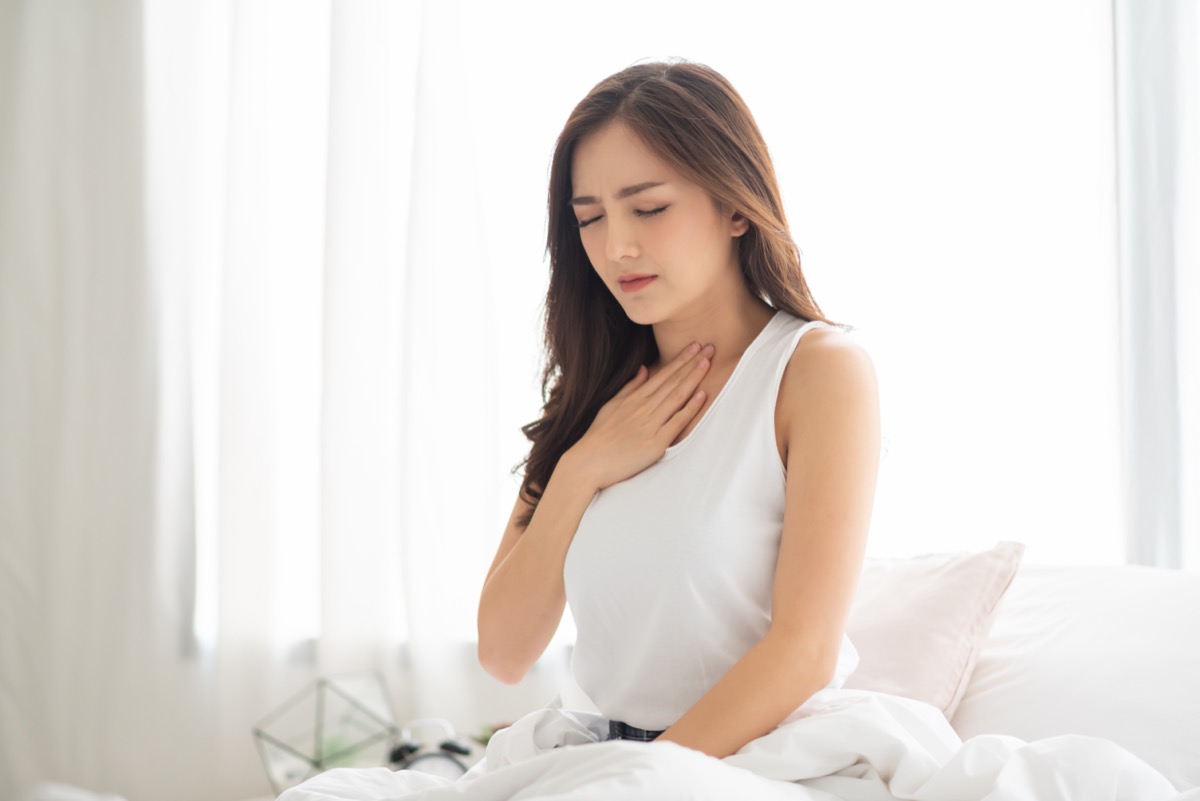
If you're among the one in five Americans who experience acid reflux symptoms, giving up those daily coffees may provide some relief.
"Coffee is known to relax the lower esophageal sphincter, which is the band of muscle between the upper stomach and the lower esophagus. When this happens, acid can reflux up into the esophagus and cause heartburn and burning, so stopping coffee may help relieve reflux symptoms," says Galvin. And if you want to get your GERD under control, check out the 28 Best and Worst Foods for Acid Reflux.
You may experience fewer allergy symptoms.
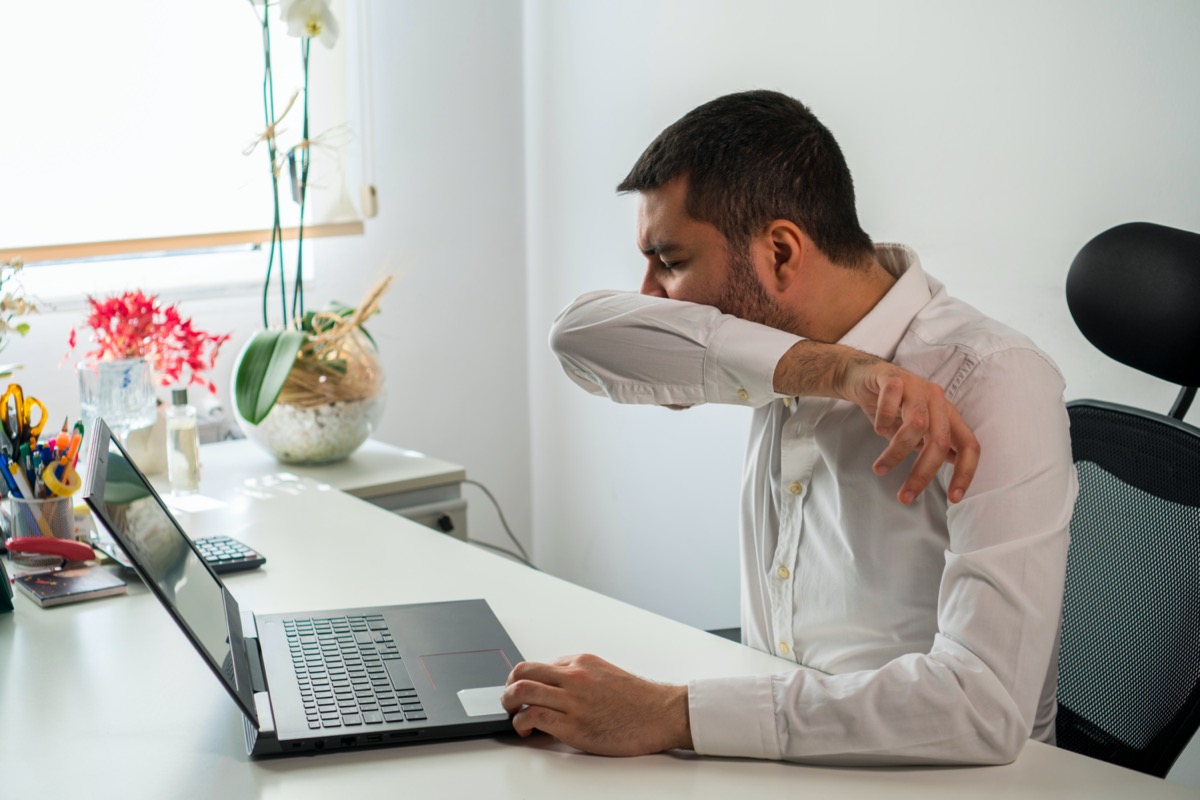
Seasonal allergies can be a major pain, and loading up on antihistamines that make you feel drowsy isn't always a much better feeling than those sneezes and sniffles. Fortunately, there's another possible way to reduce your allergy symptoms: cutting back on coffee.
"Coffee can contain molds and fungi, depending on where it is grown and processed, so if suffering from allergies, stopping coffee may help resolve those issues," says Galvin.
You may sleep better.
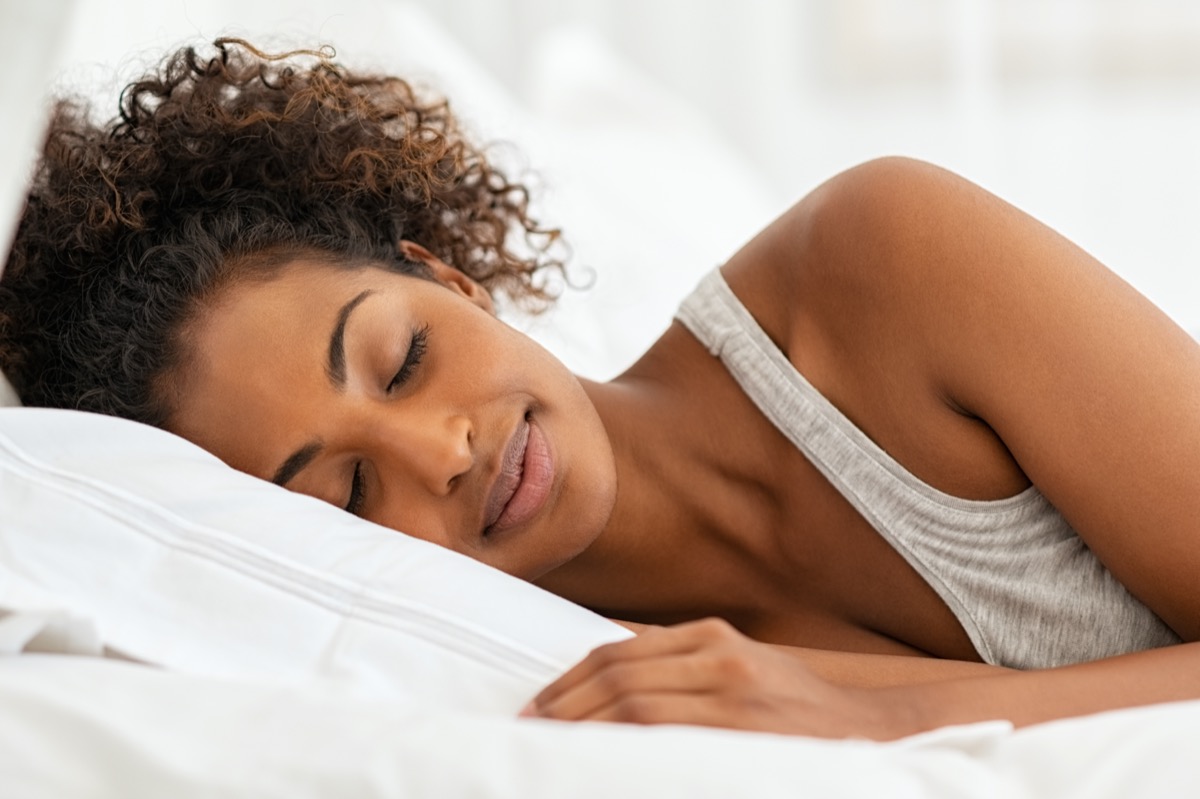
Coffee can give you a burst of energy, so it stands to reason that it can also make it a bit more difficult to turn in at the end of the day. Fortunately, if you're struggling to fall asleep, giving up coffee may help.
"Coffee can negatively impact sleep because the caffeine blocks adenosine (a sleep-promoting chemical in the brain), and it can disrupt your circadian rhythm due to the lack of adenosine buildup over the course of the day," says Lauren Minchen, MPH, RDN, CDN, nutrition consultant for Freshbit, who notes that the caffeine in coffee can have disruptive effects for your sleep up to six hours after your last sip.
"Cutting coffee out of your day can support a healthy, natural circadian rhythm and lead to deeper, easier sleep," Minchen explains. And for more foods that could be sabotaging your rest, check out The Worst Foods for a Good Night's Rest, According to Sleep Experts.
You may absorb more vitamins and minerals from food.

Want to get the maximum nutritional benefit from your food? Try scaling back your coffee intake.
"Studies have shown that caffeine, like that in coffee, can block absorption of B vitamins, calcium, iron, magnesium, zinc, copper, and manganese, while increasing the rate of excretion of magnesium, potassium, sodium, and phosphate," says Minchen. "If you struggle to get enough of these nutrients in your diet, cutting coffee out of your routine may help boost your levels naturally."
Your blood pressure may decrease.

Folks with high blood pressure might just benefit from cutting those espressos and Americanos from their daily routine.
"Caffeine can cause a spike in your blood pressure [and] coffee can block a hormone that helps keep your arteries widened, so limiting caffeine can help bring blood pressure down," says Alana Fiorentino, RDN, CDCES, a dietitian-nutritionist and diabetes educator.
You may use the restroom less.
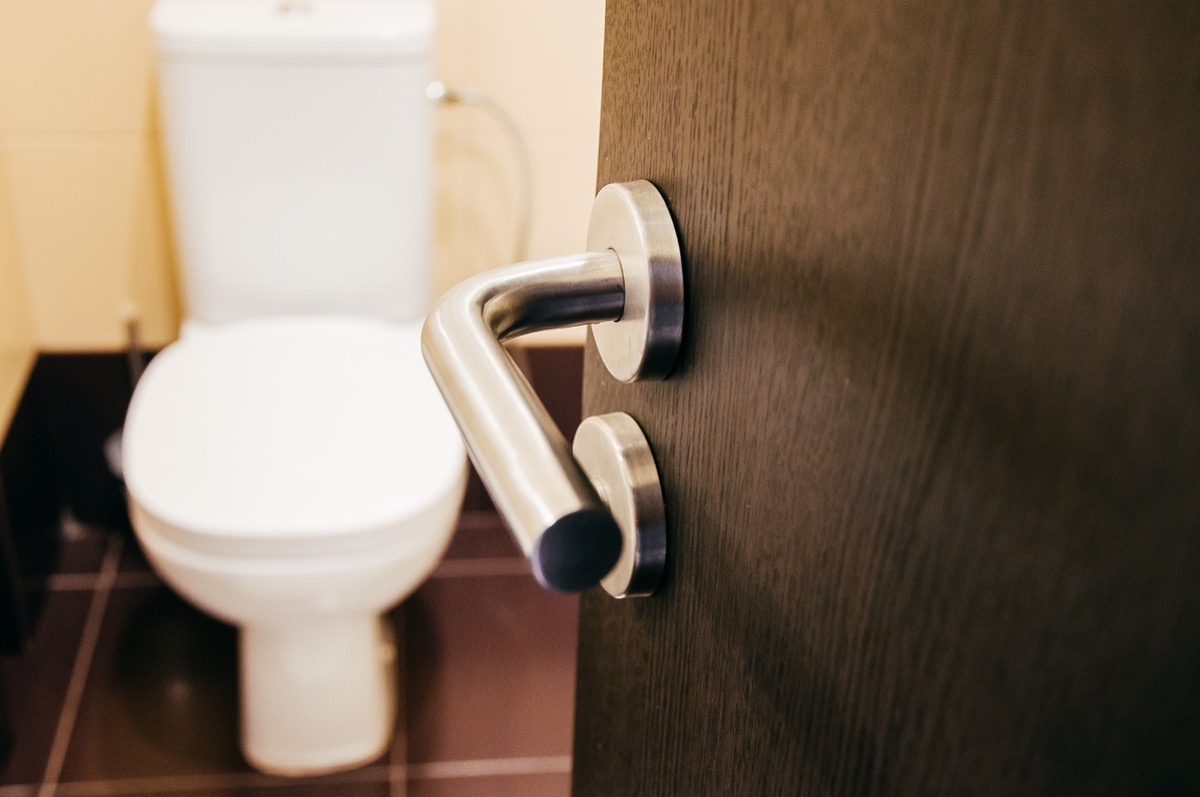
If you find yourself rushing to the bathroom throughout the day—or in the middle of the night—giving up coffee can help.
"Caffeine can cause increased urination due to its diuretic effects, or even cause potential GI side effects, but limiting caffeine can decrease bathroom tips as well as alleviate stomach issues," explains Fiorentino.
Your skin may look firmer.
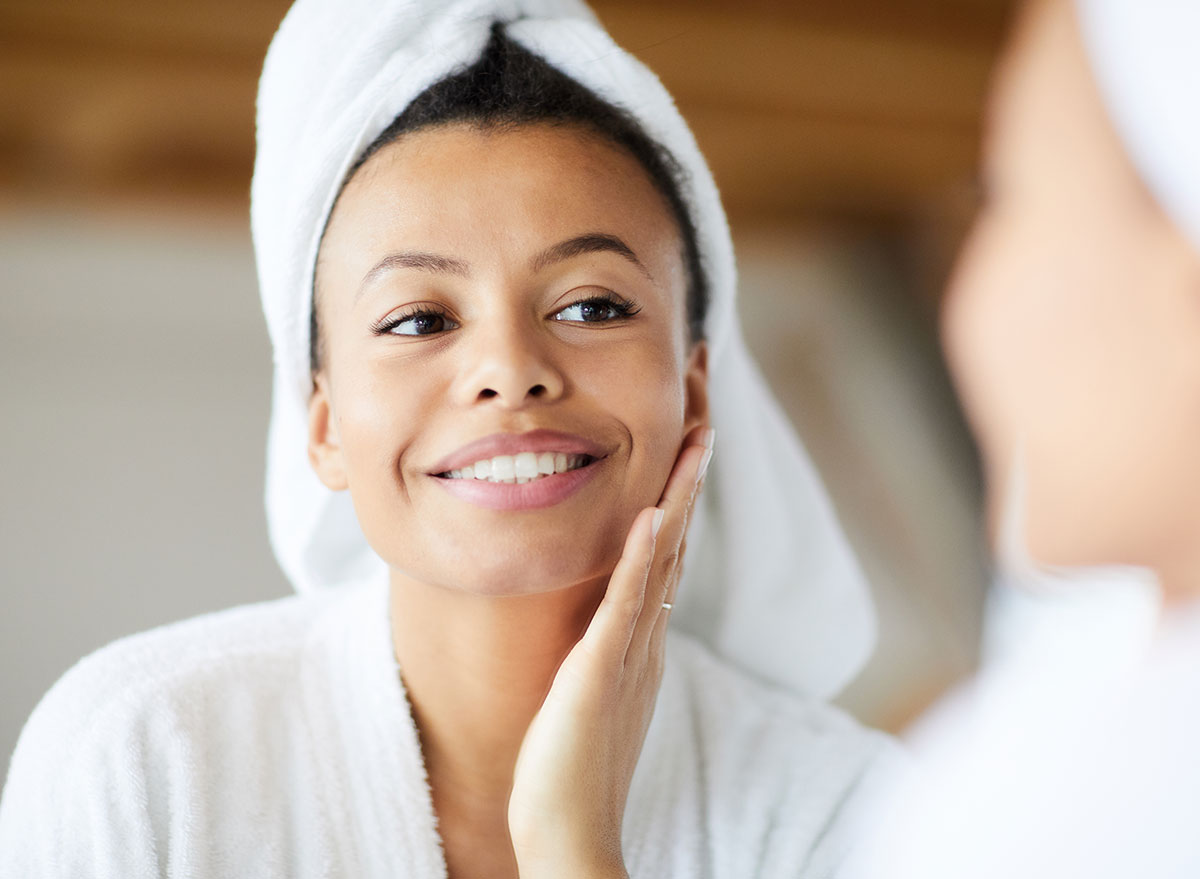
Instead of spending tons of cash on the latest skincare treatments, giving up coffee may be all you need to get the radiant complexion you want.
"Caffeine is known to slow down the body's collagen production rate," says Trista Best, RD, with Balance One Supplements. "Cutting back on coffee is one way to prevent this decrease in collagen and improve skin's appearance." For more on how your diet can affect your appearance, check out the 6 Worst-Ever Foods for Your Skin.


